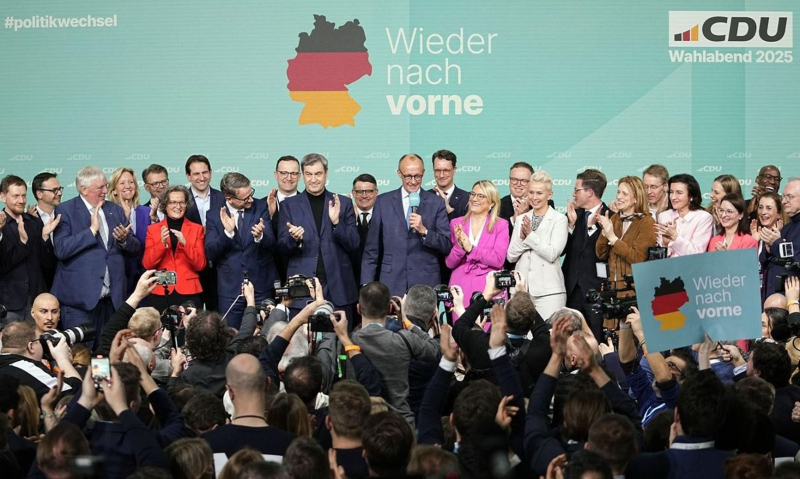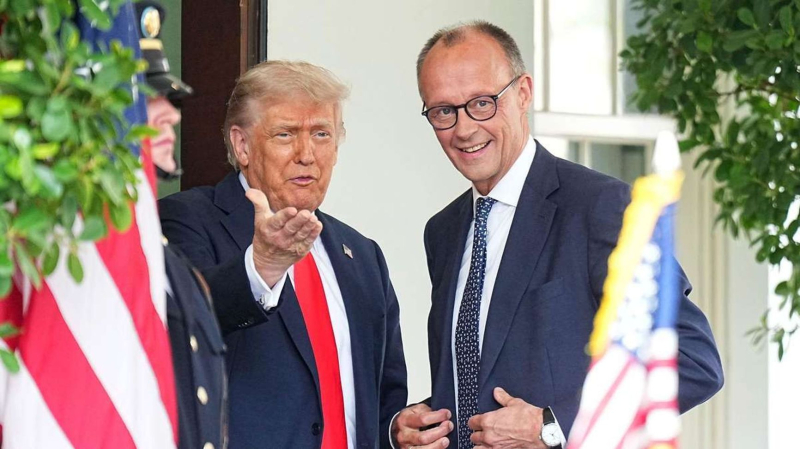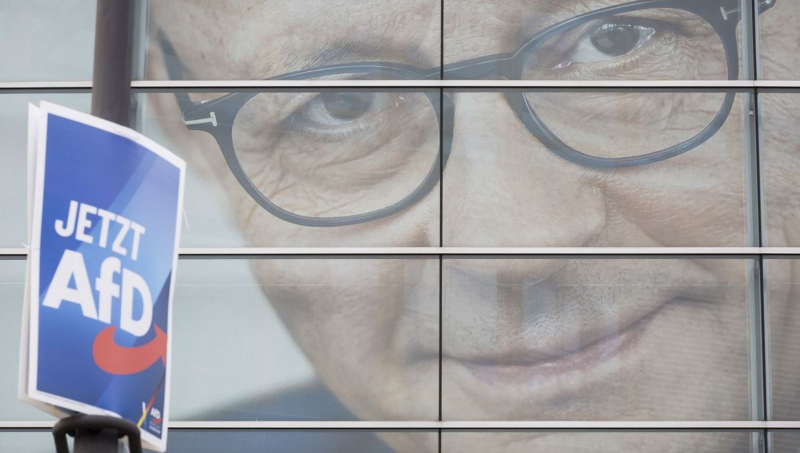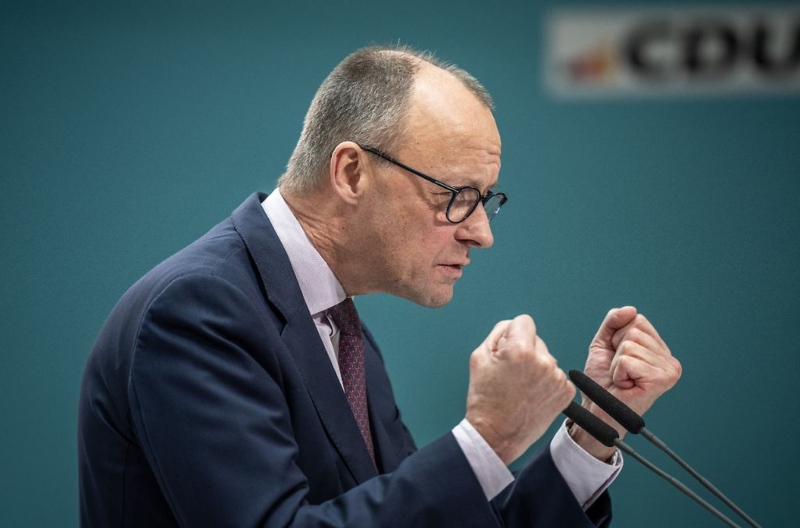German Chancellor Friedrich Merz has reached the 100-day milestone of his tenure in very weak political form. Sixty-seven percent of respondents are dissatisfied with the work of the CDU leader, and the ruling party has ceded first place in the polls to the far-right Alternative for Germany. This result is significantly worse than the first 100 days of both Olaf Scholz and Angela Merkel. Experts believe the problem is not Merz himself, but the fact that Germany as a whole is in a deep political, economic, institutional, and moral crisis. Moreover, the social divide may prove more dangerous than the economic problems, and the consequences are likely to be felt as early as 2026 in elections at various levels.
One of the key domestic political indicators in Germany in recent years has been the attitude toward the Alternative for Germany (AfD) and its electorate. Despite the far right populist party’s increasingly radical rhetoric — which flirts with the limits of existing law — AfD has gone from 11% overall support in August 2020 to 26% in August 2025.
The party has consolidated its position in the Bundestag and in state parliaments, it has won an election in one federal state, and it has finished second in a series of elections — from European to state and federal — even winning an absolute majority in some districts. AfD has become a constant in German politics, and its opponents have yet to find an adequate response to the challenge it presents.
The days when several generations voted for the same political force are fading into the past. According to various polls, between a quarter and a third of voters in Germany have lost their permanent allegiance to a particular party and may change their preferences depending on the situation. Some of them make a spontaneous decision right at the polling station.
Between a quarter and a third of German voters make their decision spontaneously at the polling station
On the right flank of the political spectrum, an electoral group has already formed. Its members may vote either for the CDU (or the CSU in Bavaria) or for the AfD. Support for the far right was once seen as unacceptable, but such moral restraints are becoming increasingly weak.
The sympathies of this particular group of voters proved crucial for Friedrich Merz. A staunch conservative and an opponent of Merkel’s centrist and liberal course, in the snap elections of February 2025 he essentially offered right-leaning voters a democratic alternative to the AfD, calling for limits to migration, a stronger German role in the world, and policies aimed at boosting economic growth.
The bet paid off — at least at first. Right-wing conservatives made a significant contribution to the CDU’s vote total, and Merz secured the post of head of government. His law-and-order policies appealed to anti-immigrant voters, as tighter border controls, stricter asylum procedures, and the deportation of “undesirable foreigners” fit their worldview. But their expectations were only partially met.
Right-wing segments of society wanted far tougher measures, but caving into their demands would mean a loss of support from the Social Democrats (SPD) — the CDU’s main coalition partner — but would likely also run counter to Germany’s international obligations, and would therefore be struck down in court. Merz is a conservative, but he is also a democrat, and he could not go that far.

Already during the Bundestag vote on Merz’s candidacy in May, it became evident that the new chancellor does not completely control his own party and faction. After winning the internal party struggle and, on his third attempt, becoming CDU leader, Merz focused on purging the centrists who supported Angela Merkel and her unsuccessful successor, Armin Laschet. He succeeded, but the right-wing conservatives brought with them an agenda that is much further to the right than Merz himself is comfortable with. As a result, he has had to make concessions to his allies — for example, by not supporting an SPD candidate for the Constitutional Court who was deemed “too left-wing” by the ultraconservatives, and by sidelining politicians popular among centrists, such as Norbert Röttgen and Dennis Radtke.
Merz purged Merkel’s centrist supporters, but the right-wing conservatives’ agenda is far more right-leaning than he is comfortable with
Calls to dismantle the “firewall” — the voluntary pledge by democratic parties not to form coalitions or cooperate with far right parties including the AfD — are still muted at the federal level, but on peripheral issues they are increasingly audible. For instance, CDU/CSU parliamentary group chairman Jens Spahn suggested that, when voting on the composition of committees and commissions, the AfD should be treated as a “normal opposition party.”
So far, democratic parliamentary parties have refrained from voting in favor of candidates from the far-right ranks, but at the state and municipal level, Merz’s party colleagues have been far more outspoken. Saskia Ludwig, a CDU member from the Brandenburg parliament, openly proposed forming a coalition with the AfD, calling it “center-right” and recommending that people “take a calmer view of our democracy and recognize the will of the voters.”
CDU lawmaker Saskia Ludwig proposed forming a coalition with the AfD, recommending that people “take a calmer view of our democracy”
Forces seeking to push the CDU toward cooperation with the AfD are also finding support on the far-left flank. Sahra Wagenknecht, leader of the Sahra Wagenknecht Alliance, spoke of the need for such a coalition and, criticizing the “old parties with no profile of their own,” stressed that “you cannot simply ignore a party supported by every fifth voter, and in the east by every third.” Notably, it is not only radicals who are reaching this conclusion. At present, 40% of Germans oppose the “firewall,” while 68% expect the AfD to see its first state premier as early as next year.
In short, Merz has found himself caught between two fires. On one side, millions of German citizens not only consistently support the AfD, but even adhere to an ideology more right-wing than what the party itself openly proclaims. Supporters of the idea that Merz should “accept the inevitable and establish cooperation” are increasingly vocal, including within the chancellor’s own party. Far-right rhetoric and proposals that test — or even cross — the boundaries of existing law no longer scare them. The “AfD-lite” format on a democratic basis has failed, and democracy itself is no longer regarded as something sacred.
But on the other side, a considerable part of society sees the AfD as an existential threat to the Federal Republic that has taken shape over the course of the postwar decades. The several million people who took to the streets in 2024 in mass demonstrations against the far right have not gone away. These citizens’ negative view of Merz, whom they believe is playing into the radicals’ hands by not resisting this danger strongly enough, is growing ever stronger. So far, Merz has not found a workable strategy for dialogue with these groups. It is quite possible that one simply does not exist.
A key part of Merz’s political image is his competence in economic matters. The current chancellor has repeatedly made it clear that his predecessors viewed economic processes through the lens of officials and bureaucrats, whereas he, a former business lobbyist and consultant for leading global companies, knows the market from the inside. He has spoken out against public debt and “left-wing, politicized projects” that cost the state budget significant sums.
Former lobbyist Merz constantly emphasizes his economic competence
One of the most controversial topics of debate in the country is the so-called “debt brake,” a fiscal mechanism enshrined in Germany’s Basic Law that allows for new annual debt of no more than 0.35% of GDP. Conservatives assured voters of the need to preserve the “debt brake,” while centrists and the left argued that in a time of global and domestic crisis, it could be relaxed, especially since the law already provides for such a possibility in exceptional circumstances.
Merz has already demonstrated flexibility on this issue, even if it hasn’t exactly won him political points. In March, after his election victory but before becoming chancellor, a rush to hold a vote in the outgoing parliament saw the future CDU/CSU–SPD coalition, backed by the Greens, effectively lift restrictions on investments in defense and security. Merz found himself in a deadlock.
On the one hand, he knew that supporting the measure would break one of his key campaign promises, and that conservative voters would remember it. On the other, without loosening the “debt brake,” there simply would have been no money for ambitious new defense plans that include the rearmament of the Bundeswehr. By siding with the much-disliked “red-greens,” Merz doomed himself to criticism from within the conservative camp.
Even the official CDU article marking Merz’s first 100 days speaks only superficially of the chancellor’s economic achievements, focusing not on what has been done but on what is planned. Germany, the world’s third-largest economy by GDP, remains in recession, and the German Economic Institute expects GDP to shrink by 0.2% in 2025, which, compared with projected growth in the EU as a whole (+0.8%), the United States (+1.3%), and China (+4%), looks rather bleak.
Germany, the world’s third-largest economy by GDP, remains in a recession
The negative trend is hitting the automotive and construction sectors — the pillars of the German economy — as well as the labor market, and the government’s more optimistic forecasts are for a scenario of mere stagnation. Problems are also evident in manufacturing: output has fallen by 1.9%, the steepest drop since 2020.
Germany’s economic development is being hampered by two objective factors that cannot be eliminated by a chancellor’s decree, at least not in the short term. First, the global environment is unfavorable for Germany, particularly when it comes to the country’s traditional industries such as automotive and machine building. German goods are expensive for a number of reasons, from high wages to the cost of energy, and they struggle to compete with products from countries where direct or indirect state support is common.
Second, Germany suffers from weak digitalization, outdated infrastructure, and high taxes and social contributions. The country’s analog bureaucracy — which demands countless permits for activities from basic business operations to regulatory construction approvals — is rightly described in expert reports and expat surveys as a major obstacle to economic development.
Still, it cannot be said that the current government is not trying to tackle at least part of the accumulated problems. After the coalition was formed, an entire ministry for digital technologies and state modernization was created, and a series of steps was taken to simplify paperwork. But here too, just as in the ideological conflict line, Merz has fallen into an electoral trap.
Part of society wants to see tangible results here and now. The drop in inflation and the decline in energy prices in July were not enough to convince these voters that Merz deserves credit, and they have not translated into higher approval ratings. The initiative of 61 companies that came together in the Made for Germany group, committing to invest €631 billion into the country’s economy by 2028, also went largely unnoticed by “ordinary Germans.” The public views the compliments bestowed on the government by German bankers as coming from a “rich man’s club” that bring no tangible benefit to the well-being of the poor and the middle class.
The public views the compliments bestowed on the government by German bankers as coming from a “rich man’s club”
Another, conservative part of society — those who prefer cash as their main means of payment and paper forms instead of online accounts — see the digital revolution more as a danger and a tool for increased state control. In these circles, the “old FRG” before 1990 has become a symbol of a “lost paradise,” much like the USSR for the nostalgic in the post-Soviet space.
During the election campaign, Merz positioned himself as a politician with a strong interest in international affairs. This was in line with his “anti-Scholz” strategy. Scholz, having been finance minister before becoming chancellor, had shown little enthusiasm for foreign policy. Merz, by contrast, projected determination, seeking to raise Germany’s prestige in the world, build working relations with Donald Trump and other “difficult” leaders, and increase both the scale and effectiveness of aid to Ukraine.

It cannot be said that he has broken these promises. His June visit to Washington was indeed a success, and the new chancellor was also received as an equal in Poland, which is traditionally no easy task for a German head of government given the long list of disputes between Berlin and Warsaw, ranging from historical and political disputes and EU agricultural quotas to conflicts over border controls.
Berlin has also become noticeably more active on the Ukrainian front, not only in providing aid (which was already substantial under Scholz), but also in diplomacy and European consolidation. A case in point was the online conference convened by Merz in record time ahead of the Trump–Putin meeting in Alaska, bringing together European leaders, the European Commission president, the NATO secretary general, the U.S. president and vice president, and Volodymyr Zelensky.
Even German publications that are traditionally not particularly friendly toward the chancellor noted that, at the recent Washington summit, Merz succeeded in conveying Europe’s united stance to Trump, thereby establishing a working relationship with the U.S. president, “squeezing almost the maximum” out of the situation, and making a significant contribution to the EU’s formation of a unified position.
The chancellor has also been active within NATO, as shown at the June summit, where Merz energetically sought to convince allies of Germany’s reliability and strength. In the first months of the new government, aid to Ukraine was expanded, and Berlin, being the first to agree to purchase weapons for Kyiv from Washington, took a leading role in securing Patriots and other vital components of Ukraine’s defense against Russian aggression.
But in foreign policy, too, Merz has found himself between a rock and a hard place. Tellingly, Germans are well aware of their government’s limited resources on the world stage: only 13% believe Merz can exert significant influence on Trump, while 84% are convinced he cannot. Even among CDU voters, 73% proved to be skeptics. The objective reality of events does not contradict these underlying antipathies toward the chancellor.
Only 13% of Germans believe Merz can exert significant influence on Trump, while 84% are convinced otherwise
On the issue of support for Ukraine, the country is divided: one half favors continuing or even expanding aid to Kyiv, while the other calls for cuts. Accordingly, the chancellor’s course is criticized both by those expressing solidarity with Ukraine, who fault him for a lack of decisiveness on issues like the provision of Taurus missiles, and by isolationists, who accuse the authorities of “squandering taxpayers’ money” and see Merz as compounding Scholz’s mistakes.
A similar split has emerged over the Middle East conflict. Demonstrations are taking place in Germany both in support of and against Israel. For one camp, Merz is “abetting the genocide of Palestinians,” while for the other, his decision to reduce arms supplies to Israel indicates that he is “forgetting Germany’s historic responsibility to the Jewish people.”
Germany is experiencing an identity crisis that, while less visible internationally than the economic malaise, is no less dangerous. Yes, the German economy is struggling, and the country finds it difficult to compete with China and the U.S. on the global stage, but the emerging social divide is ultimately more important and, in the long term, more serious than any economic problems.

A significant portion of the population is no longer willing to follow the written and unwritten rules established in the “most anti-fascist” state of Old Europe. They reject restrictions related to historical and political contexts. They are skeptical of parliamentarism and the “traditional” decision-making system. They favor a “strong hand.” And they are ready to break taboos around the far right, whose main voice and representative is the AfD.
This electoral niche has long been heterogeneous. It includes people from different economic, regional, and age groups. Support for the far-right course is no longer limited to the eastern part of the country — it has become a nationwide issue. Polls ahead of the “big election” in 2026 (elections at various levels across eight states simultaneously) indicate the possibility of three-party parliaments in some regions (for example, AfD, the Left, and CDU), making a coalition without the AfD arithmetically impossible.
But there is also another Germany — one that fiercely resists the dismantling of the traditional parliamentary-democratic model that has made the FRG so attractive internationally. This Germany pickets far-right conventions and participates in other democratic demonstrations. In this confrontation, Merz and his broader coalition are unable to make radical decisions. For now, they will stick to the comparatively less complex issues — like de-bureaucratization and carrying out successful negotiations with Trump.



